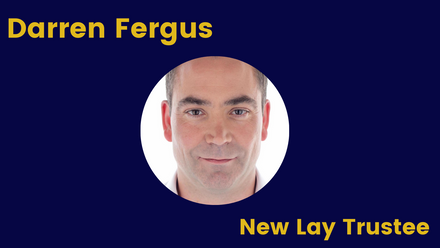New ICS Council Members 2019
We are delighted to announce that the ICS received 526 votes for the latest Council election. Thank you to everyone that put themselves forward, nominated and voted. We extend our congratulations to Marlies Ostermann; Jeremy Bewley; Charlotte Summers and Paul Dean. Welcome on board!
Marlies Ostermann has been an active member of the ICS for more than 10 years and is a full-time intensivist with special expertise in Critical Care Nephrology and a passion for clinical research. Her particular mission is to ensure that new evidence and knowledge are generated and routinely integrated into clinical practice through education and training. We’re excited to have Marlies’ energy, experience and enthusiasm on board the ICS Council along with her strong commitment to translational research. She brings with her a vast body of experience including working very closely with other similar organisations, including the European Society of Intensive Care Medicine (ESICM), the Faculty of Intensive Care Medicine and the Royal College of Physicians, and a shared value in collaborative networking and knowledge sharing which are essential for the future clinical care. She is also a founding member of the diversity task force of the ESICM and fully supports the integration of equity, diversity and inclusivity in all activities.
Jeremy Bewley was elected to ICS Council 3 years ago and has chaired the Research Division for the last year having merged the Intensive Care Foundation with the Research Committee which he formerly chaired. He is presently running a £50,000 research prioritisation exercise which will be selected at the ‘State of the Art’ meeting by you, the ICS membership. In 2019 a research strategy exercise has taken place. This has emphasised the key role that the ICS has in pump priming new research, disseminating research, endorsing research projects, mentoring new researchers and using its influence to set the research agenda. He plans to deliver this strategy over the next 3 years. Jeremy has been a Consultant in Intensive Care at the Bristol Royal Infirmary since 2001. He was ICM Training Programme Director and then Regional Advisor of Severn ICM training programme from 2011-2017. Jeremy examined for FICM where he chaired the MCQ exam group and led a team of 4 amazing research nurses who recruit to TTM2, TAME, Stress L, BLING, FLOELA, PQIP and other studies. He is also his Trusts’ Sepsis Lead.
Charlotte Summers shares the values of the ICS in a multi-disciplinary approach to research, education, and standards development. Over the past decade, she has contributed to UK critical care in multiple ways, including supporting doctors (both trainees and Consultants), nurses, and AHPs to undertake research as a means to improve patient care at the bedside, and being a member of the State of the Art Programme Committee; contributing to The Bottom Line. Her experience of research and education will allow her to make a positive contribution to the ICS, supporting the delivery of the goals outlined in “Your Society – Our Strategy” of increasing multidisciplinary research capacity and delivery to improve clinical care. Following her graduation from the University of Southampton, she later undertook specialist training in Respiratory (Eastern region) and Intensive Care Medicine (London). Subsequently, she was appointed as the UK’s first NIHR Clinical Lecturer in Intensive Care Medicine, earned a Fulbright Scholar Award and a Wellcome Trust Fellowship to support her spending time at the University of California, San Francisco before returning to Cambridge in 2015.
Paul Dean is also enthusiastic about continuing to be involved with the Intensive Care Society as it moves into its 50th year. He is currently Chair of the Standards and Guidelines committee and has been heavily involved in the production of many guidelines including GPICSv2, air embolism, transfers, and I continue to drive collaboration with other professional bodies to produce new and practically useful guidelines, this is in addition to wholeheartedly supporting the multi-professional (Nursing, Dietetics, SLTs, Physiotherapy, Pharmacy) nature of the ICS Council. Paul has already helped develop wider networks to help support the ICS strategy.Through involvement in Critical Care Networks he has led QI projects which have had a positive impact on patient care and continues to support QI projects and research within his own Critical Care Unit. These opportunities have also allowed him to open up development opportunities for the future workforce - trainees.

